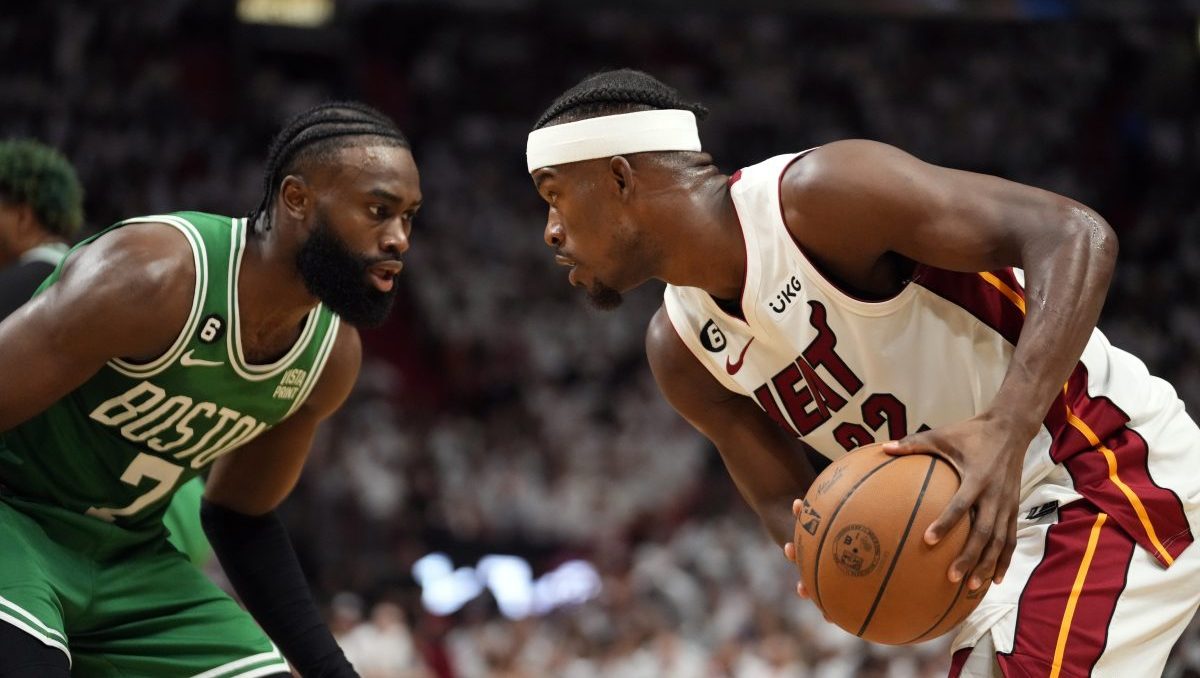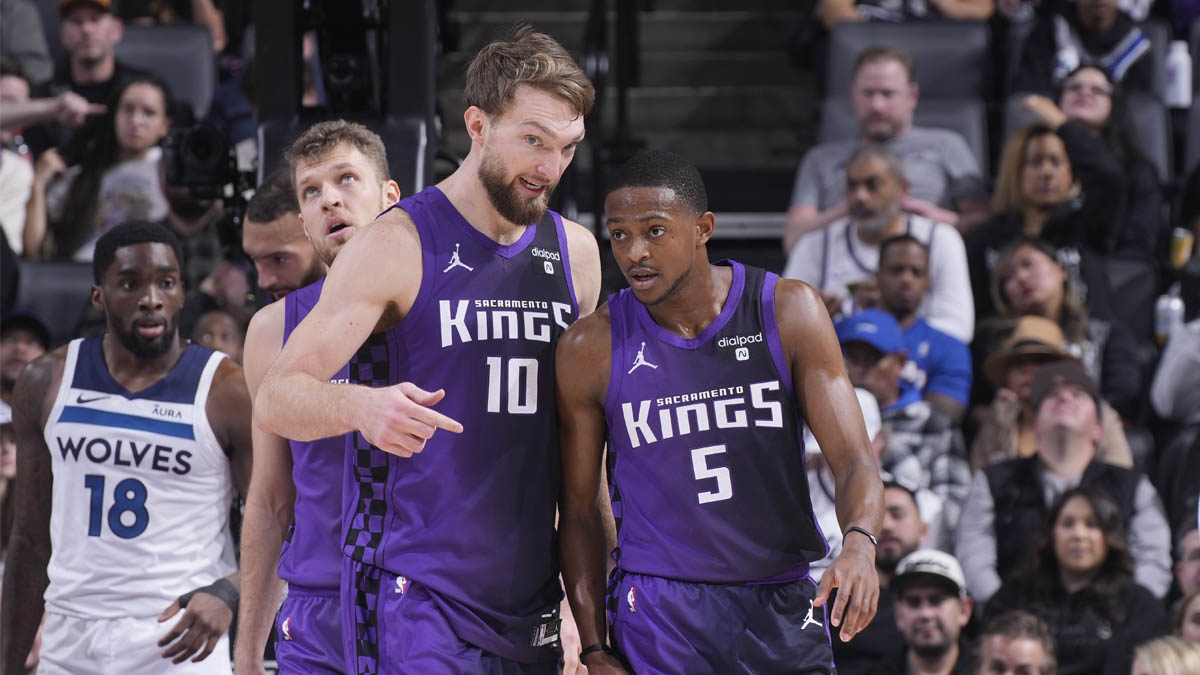- Programming note: Watch "Race in America: A Candid Conversation" Friday, Dec. 11 at 8 p.m. on NBC Sports Bay Area.
When the Los Angeles Clippers traded for All-Star point guard Chris Paul in 2011, adding his crafty passing to a roster featuring high-flying big men Blake Griffin and DeAndre Jordan, it didn’t take long to coin a nickname so catchy it was followed by a song.
“Lob City.” Sounded original. The song, by rapper Tyga, which led to a video featuring highlights of Paul, Griffin and Jordan, was semi-original, with lyrics adapted from Tyga’s “Rack City.”
Stay in the game with the latest updates on your beloved Bay Area and California sports teams! Sign up here for our All Access Daily newsletter.
In truth, the "Lob City" concept was more than 20 years old.
The original “Lob City” was formed in 1990 by the Seattle SuperSonics, featuring All-Star point guard Gary Payton and hyperathletic forward Shawn Kemp. They claim the Clippers merely capitalized on what they created.
"We actually had a phone call about that,” Kemp recalls, laughing along with Payton. “We were the original ‘Lob City,’ man. You can AKA a lot of things in this world, but when they say Lob City, they’ve got to say, ‘Original Lob City,’ Gary Payton and Shawn Kemp.”
He’s not wrong. Check the highlights.
NBA
Payton’s nickname was “The Glove,” for his snug on-ball defense; he’s the last guard, in 1996, voted Defensive Player of the Year. Kemp’s nickname was “Reign Man,” a play on Seattle’s drizzly climate and his ability to soar above defenses. Their “Lob City” act was spectacular.
Well into retirement, Payton and Kemp have put "Lob City" in the past and migrated to a different career with an alternative definition for flying high. Call it Chronic City.
As in cannabis.
As guests on “Race in America: A Candid Conversation,” (Friday night at 8 p.m. on NBC Sports Bay Area), Payton and Kemp spent time discussing their business ventures while also talking hoops.
Kemp, 51, has a small ownership stake in “Kemp’s Cannabis,” a Seattle dispensary that opened in early November. He’s the first Black business executive in Seattle to own a share in the business. His full name, in bold Sonics green-and-gold, lights up the storefront.
“It’s something I’ve been interested in for a long time,” Kemp says. “I had to check it out for a few years, the laws and the rules of the game. I found the right people to partner up with. That was the most important thing. That way you get a real education of the business ... Once I did that, then everything took off from there. It’s been a bit of a ride, but the store is open, it’s doing fine and we’re looking for big business. Hoping to open No. 2 real soon.”
It surely helps that Kemp and Payton remain massively popular figures in the Seattle area, where fans, 12 years since the franchise was sold and moved to Oklahoma City, still carry a torch for Sonics basketball.
Payton, 52, doesn’t smoke weed -- he uses such cannabis-based products as lotions and oils -- but he’s in the smoker’s market. In association with Fred Berner, CEO of Cookies Oakland, the Hall of Famer and Skyline High School product has his own strain, described by the cannabis website Leafly as: “A collab between Cookies and Powerzzz Genetics ... a highly coveted hybrid marijuana strain bred by Cookies cultivar and named after the NBA Hall of Famer.”
“Hey, we can’t keep it on the shelf here,” Kemp says, grinning, from his office in the Seattle store. “As soon as we put it on the shelf, it’s gone.”
Says Payton: “We didn't know that it was going to be this popular, but we knew if it was ‘fire’... and it had my face on it, that would make it even better because I relate to all the street guys. I relate to all the non-street guys. I relate to the kids. I relate to everybody.”
The national cannabis business, which didn’t exist during the careers of Payton and Kemp, has through decriminalization and legalization become one of the fastest-growing industries in America, creating roughly 300,000 jobs and counting.
That growth is the product of societal education, of understanding the medicinal qualities and realizing cannabis isn’t just used as a recreational intoxicant but also for pain relief and to help people cope with stress. It’s legal in some form in 36 states, with the total climbing with each election.
“We've talked about ‘The Glove’ and 'The Reign Man' cannabis, too,” Payton says. “We were thinking about doing that pretty soon. We want to take it around to more states. Our goal is not five stores. Ours is 50.”
Payton and Kemp are among many former NBA players, including former Warriors Al Harrington and Larry Hughes, to enter the cannabis business. Other former athletes investing or otherwise participating include 49ers legend Joe Montana.
RELATED: NCAA's exploitation of athletes has exploded during pandemic
It’s a long way from the basketball court and the football field, but the memories don’t go away. Today’s cannabis salesmen are yesteryear’s highlight producers.
“These young people (who saw the ‘Lob City’ Clippers), they didn't really see me and Shawn,” Payton says. “They probably weren't born. We were throwing that ball up there like (very high). But you gotta understand, I was throwing the lob way more difficult. And I had a way more athletic guy in Shawn Kemp than Blake Griffin and DeAndre.
"They might go get it, but I could be on the run and he could be running 50,000 miles an hour and still go get it. They were was going off pick-and-rolls. We were doing it freestyle."


